The Toolbox | The Tools To Navigate Life
What is the Toolbox?
Life is a series of emotional experiences contained within the framework of time. We have the privilege to experience as many emotions as we can within this finite timeframe. The tools we collect in our Toolbox help us navigate these endless emotional opportunities.
From infancy, we begin collecting tools from all of our immediate inputs. We acquire basic skills first, like walking, talking, eating, and socializing. As we grow older, we go to school to learn obedience, reading, writing, and problem-solving. Simultaneously, we start to learn skills that interest us individually and help us express who we are. These skills can be our hobbies, interests, and personal presentation. All the skills we collect from infancy to old age become tools in our unique toolbox.
Your Toolbox is the collection of skills you use to navigate life. If life is like building a house, your toolbox holds all the tools you need for different parts of that process. As you build your “house life,” you learn how and when to use certain tools and may use others incorrectly, making the building process difficult.
What are the Tools?
Our toolbox is a collection of mental tools that assist us in our lives. Tools are anything and everything that helps you navigate life. As you go through life, you acquire new skills from all your experiences and get better at using the tools you already have.
– Regulation Tools: How you manage your actions when you are emotional, like taking a deep breath or impulsively exploding to deal with emotional overload.
– Mindset Tools: Your outlook on the world, such as an optimistic or pessimistic perspective. A growth mindset helps you overcome obstacles rather than submit to them.
Beliefs, Philosophy, Coping Mechanisms, Habits, and Emotional Skills: These shape and reform your perception of the world and your experiences.
Why Should You Care About the Toolbox?
Your toolbox will be built regardless. If you choose to live your life on autopilot and never develop helpful tools, you will develop harmful weapons by default. Weapons are harmful misuses of tools, such as beliefs, habits, and emotional skills, that work against you to dismantle everything you try to build for yourself.
You must also be aware that the tools that serve you at one point in your life may not always serve you over time. Keeping tools past their expiration date can turn them into weapons.
Weapons:
-
Fixed mindset
-
pessimistic beliefs
-
nihilistic philosophy
-
addictive coping mechanisms
-
poor consumption habits
-
tantrums and withdrawal.
You have the choice to consciously collect tools that help you move toward the life you want. You can learn skills that elevate your life, improve your communication, and develop your confidence and self-worth. Or you can develop negative tools that stunt your growth and hold you back from the life you deserve.
The toolbox is supposed to help you squeeze as much as you can out of life. The tools you collect should help you live better, connect more, and grow. If your tools stunt your growth, they are holding you back. Those negative tools are weapons and have no place in your life.
Things To Remember:
– As you develop, the tools you once used may no longer be helpful.
– You can consciously collect useful tools or unconsciously collect harmful tools.
– If you build your toolbox the right way, you can get more out of life.
– If you don’t build your toolbox, you will encounter a lot of friction and issues.
– Negative tools stunt growth and limit understanding.
How to Build Your Toolbox
Skill Acquisition
Skill acquisition is the process of intentionally building your toolbox. Learning skills that help you experience the life you desire is the best way to build your toolbox. Skills that help you communicate your feelings, regulate emotions, and enjoy life are just as important as those that create income.
Tools You Should Have in Your Toolbox:
– Emotional Intelligence
– Growth Mindset
– Discipline
– Kindness
– Honesty
– Curiosity and Questioning
If you do not have these skills in your toolbox, start learning about and developing them. These tools can dramatically change your life for the better. You don’t need to master these skills immediately; just begin working on them at your own pace. Apply the Kaizen method to your education and slowly build your toolbox in a way that works best for you.
Learn New Things Often
Improve Inference Skills to Make Connections to Other Tools
You don’t know what works for you until you try. Learning new skills, ideas, and points of view will only improve your toolbox. The more you learn, the more connections you can make between your existing skills and new ones, enhancing your inference skills.
Remember, these tools are just tools. The collection of tools isn’t the point of life; they assist you while you live your experience. Life is for living, and it’s already happening, so try not to prepare to live it.

